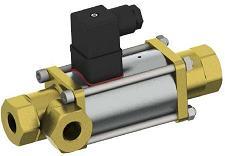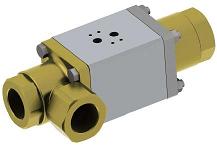
 Valves Home Valves Home  Technical Data Technical Data  Viscosity Tables Viscosity Tables Solenoid Valve Viscosity Tables.General Guide to various fluid viscosity for solenoid valves.Typically most solenoid valves weather they are 2/2 or 3/2 way will operating and function correctly for any chemically compatible fluid or gas up to a maximum viscosity of 40 or 50 CST, as given by the technical data sheet for that valve. The only exceptions to this 40/50 CST maximum viscosity are more specialised special application solenoid valves such as Co-axial solenoid valves (600CST), coaxial pneumatically operated valves (600 CST), special petro-chemical solenoid valves and pneumatically operated angle seat piston valves (600CST). Solenoid valves for special media can be found here. Typically when using most gases or basic liquids such as water or diesel then it is safe to assume viscosity will not be an issue so long as the materials of construction, pressure ratings, flow, size and voltage are correct. Below we list some of the more typical viscosities found in general solenoid valve and special application coax and petrochemical solenoid valve applications along with some cross viscosity reference engineering tables.
Definition. Viscosity is the measurement of a fluid's internal resistance to flow. This is typically designated in units of Centipoise or poise but can be expressed in other acceptable measurements as well. Some conversion factors are as follows: 100 Centipoise = 1 Poise 1 Centipoise = 1 mPa s (Millipascal Second) 1 Poise = 0.1 Pa s (Pascal Second) Centipoise = Centistoke x Density Viscosity Conversion Chart – Based on Fluids at 20°C Centipoise to Poise to Centistokes to Stokes to Saybolt Universal Conversion
|
| ||||||||||||||||||||||||||||||||||||||||||||||||||||||||||||||||||||||||||||||||||||||||||||||||||||||||||||||||||||||||||||||||||||||||||||||||||||||||||||||||||||||||||||||||||||||||||||||||||||||||||||||||||||||||||||||||||||||||||||||||||

